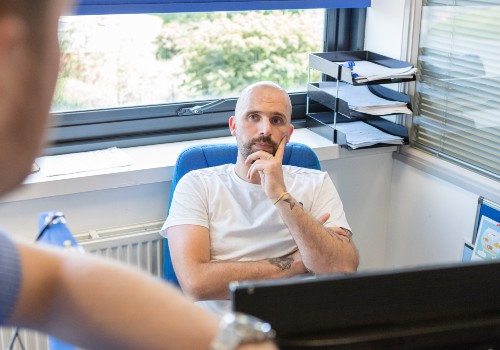With almost one million people in the UK suffering the effects of long-COVID, it is essential that
employers are aware of the effects of the condition and are equipped to manage potential long-term
sickness absence cases.
Here we offer guidance as to how best to support those who may be suffering from long-COVID:
What is Long-COVID?
The term ‘Long-COVID’ is used to define the symptoms and effects of Coronavirus (COVID-19) that extends 4 weeks beyond the original diagnosis. COVID-19 affects each individual differently and, according to the NHS website, most people who suffer from COVID-19 will feel better in a few days and make a full recovery within 12 weeks. However, symptoms can last longer for some.
Symptoms of Long-COVID can include:
• Fatigue
• Shortness of breath
• Chest pain or tightness
• Problems with memory and concentration
• Insomnia
• Depression and anxiety
• High temperature, cough, headache, changes to taste and smell
Treatment
Most people will recover from their symptoms at home without requiring medical intervention. However, in some cases, further tests such as blood tests or chest x-rays may be carried out to aid recovery, or a referral may be made to a rehabilitation centre.
Recovery
Recovery varies widely from person to person and therefore employers should be mindful that, particularly for those suffering with persisting symptoms of Long-Covid, employees could be absent from work for several weeks.
Sickness absence is classified as long-term once an employee has been continuously absent for 28 days and, especially during periods of long-term absence, it is vital that employers look to support employees with a proactive approach.
Fit notes
An employee can self-certify their sickness for 7 calendar days. From day 8 of absence, an employee will require a statement of fitness to work (aka a Fit Note) from their GP, certifying them as unfit for work.
Keeping In Touch
Employees can feel isolated and vulnerable when off work for a period of time and therefore, it is vital to keep in touch with the employee, so that they know support is available.
You can support your employee by arranging regular review meetings. These can take place remotely via telephone or video call or, if your employee feels well enough, in person.
The purpose of a review meeting is to discuss the employee’s absence and to seek an update with regards to their current state of health, treatment plan and prognosis. If appropriate, you can approach the subject of returning to work, however this will be dependent on the reason for absence and long-term prognosis. The employer should answer any concerns an employee may have regarding their extended absence and should take steps to try and help facilitate a return to work, such as discussing or agreeing reasonable adjustments.
Obtaining medical advice
Once it is known that an employee’s sickness absence will be long-term, a referral to a medical practitioner may be necessary to seek further guidance on the employee’s condition/illness, the predicted duration of their absence, and to ask what potential support you can put in place to help your employee return to work. The medical practitioner could be the employee’s own GP or you can instruct Occupational Health to conduct an assessment. If you decide to contact the employee’s GP, you need to be aware that this action will fall under the Access to Medical Records Act 1988, which gives employees a range of rights with regards to their medical report. Therefore, it is important to liaise with your HR Advisor before proceeding to request medical records.
Discrimination
Any period of long-term absence could be considered as a disability under the Equality Act 2010, entitling the employee to protection against discriminatory treatment. Under the Act the employer will be expected to make reasonable adjustments. The Act covers a very broad definition of what a disability is, spanning both physical and mental conditions that are expected to last 12 months or more.
Long-COVID is viewed as a new illness and the full long-term effects are still being understood. It looks unlikely that Long-COVID itself will be automatically classed as a disability under the Equality Act, but it could be considered, similar to ME and chronic fatigue syndrome, if the symptoms become significant enough to impact long-term on an individual’s daily life and functioning ability.
Research has shown that Long-COVID is more likely to severely affect older people, individuals from an ethnic minority background and women. It is therefore vital that employers are cautious in avoiding other types of discrimination when managing and supporting those suffering from Long-COVID.
Managing a return to work
Once a medical practitioner has cleared the employee as fit to return to work, the employer should consider the next steps to support their return.
For employees that have been absent from the workplace due to Long-COVID, a return to work can cause additional anxiety and they may require additional support from their manager. It is important that each employee has a return-to-work meeting to discuss their individual absence and future support.
The employee’s medical practitioner may have suggested a phased return or an amendment to hours or duties (reasonable adjustments) that may be beneficial to explore, with a view of ensuring a long-term return to work for your employee. The employer will also need to consider if the employee requires any reasonable adjustments under the Equality Act 2010.
Reasonable adjustments could include:
- Phased return to work
- Work from home
- Amending start/finish times
- Adding in an additional break
- Adjusting work duties/workload
- Supplying additional equipment
- Reducing hours/days of work
Be sure to follow up any discussions in writing so both you and the employee can refer back to what has been agreed, and arrange to meet with them once they have been back at work a few weeks, to check everything is working well.
From time to time an employee will return to work and will not be able to sustain the same level of performance as they did before they were sick. Therefore, it is important to meet with the employee and offer them the opportunity to inform you of any issues they may be experiencing. If issues are identified, then you can discuss if any temporary or permanent reasonable adjustments, as detailed above, can be made.
Summary
Symptoms from Long-COVID can vary significantly between individuals and the recovery can be a distressing and lengthy process. Therefore, it is important that employees feel supported in their recovery by their employers and allowed to recover at their own pace.
Support can be given by:
- Scheduling regular wellbeing conversations
- Refer to Occupational Health if appropriate
- Arranging a return-to-work meeting
- Investigate flexible working or reasonable adjustment options
- Regularly check to make sure any reasonable adjustments are still effective
- Signpost to local wellbeing services
To see more on our Wellbeing Services at Romero Insurance Brokers, see below:



